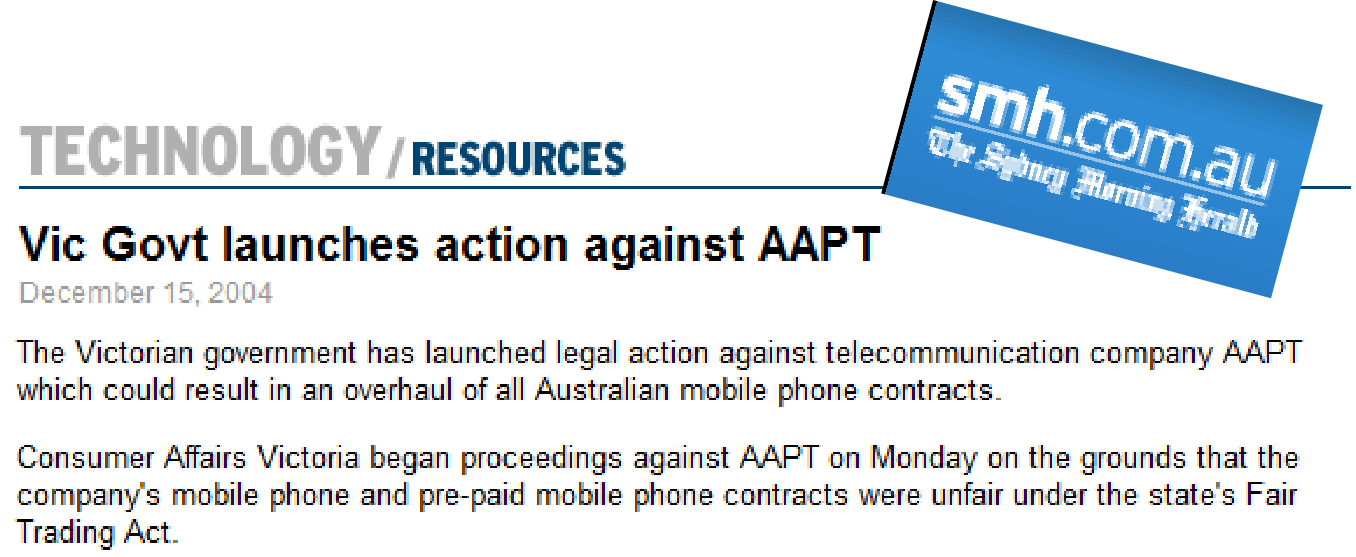 As we’ve noted, the TCP Code bans unfair terms in standard form consumer contracts, and so does the Australian Consumer Law. It’s important to understand that you can’t justify or remedy an unfair term by saying, ‘We never/hardly ever use that term’ or ‘In practice, we enforce it in a balanced way.’ The way the law is written, it makes no difference whether a single customer was ever actually prejudiced by an unfair term. It’s the potential for harm that’s the problem.
As we’ve noted, the TCP Code bans unfair terms in standard form consumer contracts, and so does the Australian Consumer Law. It’s important to understand that you can’t justify or remedy an unfair term by saying, ‘We never/hardly ever use that term’ or ‘In practice, we enforce it in a balanced way.’ The way the law is written, it makes no difference whether a single customer was ever actually prejudiced by an unfair term. It’s the potential for harm that’s the problem.
ACCC reiterated this point in its 2013 Report on Unfair Contract Terms.
What ACCC said
ACCC stated its views this way:
Why is it so?
There are three elements in testing whether a term is unfair, set out in section 24 of the Australian Consumer Law:
A term of a consumer contract is unfair if:
(a) it would cause a significant imbalance in the parties’ rights and obligations arising under the contract; and
(b) it is not reasonably necessary in order to protect the legitimate interests of the party who would be advantaged by the term; and
(c) it would cause detriment (whether financial or otherwise) to a party if it were to be applied or relied on.
Notice that no part of the test requires that anyone has ever actually been harmed by the term in question. On the contrary, the highlighted words make it clear that it is the potential for detriment that makes a term unfair.
And in case you’re still not convinced, the original draft of the bill that became the Australian Consumer Law did include an extra requirement: that the term caused actual detriment or was substantially likely to do so. That was deleted from the final version.
What this means in practice
If you include in your standard form consumer contract a term that satisfies the three tests in section 24, ACCC doesn’t even need to produce a ‘victim’ in legal proceedings, or evidence of unfairness in practice. It doesn’t need to show that a single person has actually been affected by the term.
That’s exactly what happened in the first legal decision on unfair contracts in Australia, involving an earlier Victorian law that corresponds to the ACL on this point. AAPT’s Standard Form of Agreement was ruled to contain unfair terms, without a single disadvantaged customer being identified.
And neither can a telco defend an unfair term by saying, ‘Our practice is to enforce the unfair term in a fair way’.
So it’s no answer to say ‘Only a few customers have been affected by this term’
A few affected customers, or even zero affected customers, doesn’t cure an unfair term. Deliberately, Parliament has passed a law that focuses on words, not actions, here.



